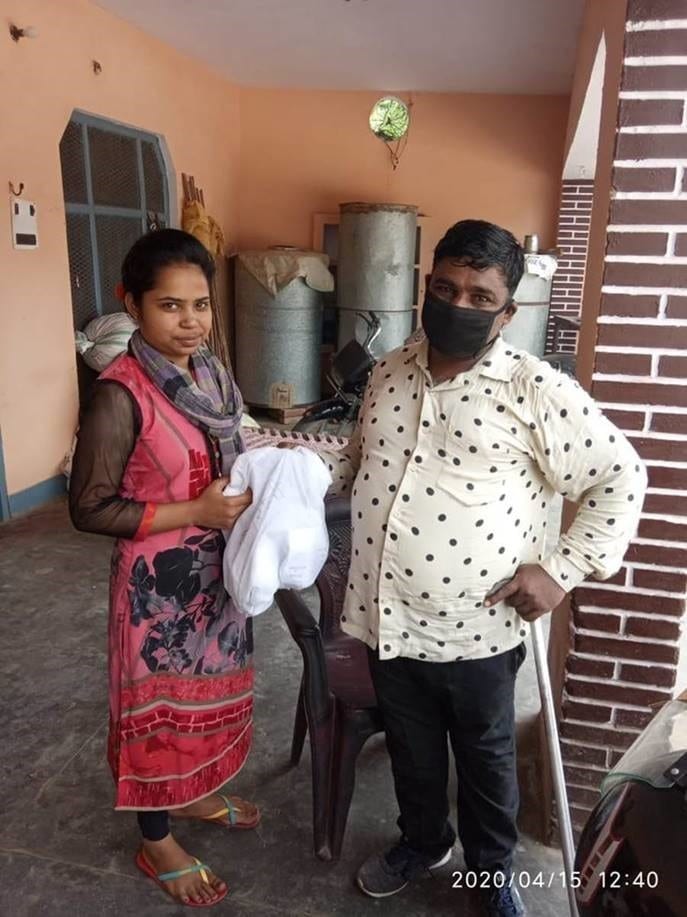Resources
Tearfund Case Study: Partner Organisation: SHIFA Mental Health and Disability Project – India
The unprecedented spread of COVID-19 pandemic has led to a stressful situation all
over the world, making it an issue of global health concern. The impact of this
pandemic, however, is not limited to physical health. Many issues related to mental
health are on the rise, and people with existing psychosocial conditions are often left
without access to the support they require. In Saharanpur, a district of Uttar Pradesh, India, TEAR’s partner organisation Emmanuel Hospital Association runs the project SHIFA Mental Health and Disability which works to improve the mental health of people with psychosocial disabilities and their families.
“I am a person with a disability and I have felt sad during the pandemic. But the help I’ve received means I can now support my family and I am very happy about that. Someone is standing beside the poor.” – Anita
Many people in this region are reliant on livelihoods in agriculture, horticulture and trade. Severe lockdowns were imposed on the community when the pandemic began and people suddenly found themselves out of work, unable to support themselves and their families. People with psychosocial disabilities struggled to access psychological support and their medications, and some even experienced depressive episodes and suicidal thoughts. The government established a free rations program so communities could access daily necessities, but the local health service weren’t able to provide adequate support for those with mental health issues. People within the community felt fearful and stressed.

During the pandemic SHIFA Mental Health Project partnered with several local organisations, including an OPD (Organisation of People with Disabilities) and faith based groups, to ensure individuals and families got the information and support they needed. One initiative provided vital psychiatric services and medicine to those that needed it – many from the local community came forward for support and care. A brochure was also developed to promote health messaging in the communities on “How to stay mentally healthy during covid-19 lockdown”. The brochure was available in five local language dialects and shared through a number of channels to ensure the information was accessible. Further, hygiene kits including face masks and sanitizer were distributed to a number of families, along with public health messaging about how to protect yourself from COVID-19. This included education on hand washing and how to safely use a mask.
“We are delighted. Our daily life has improved! During lockdown the project has made medicines available to our family and we are incredibly grateful” said Rishipal.
It is programs like these that pave the way for a more inclusive future, where all people are included. We are working towards that future where everyone, especially people with disabilities and psychosocial disabilities, is valued and respected as part of the family and community; a future where everyone will be able to reach their full potential. With small steps, change is possible.
Thank you to Tearfund Australia for sharing this case study with ADDC. All photo rights to Tearfund Australia.
